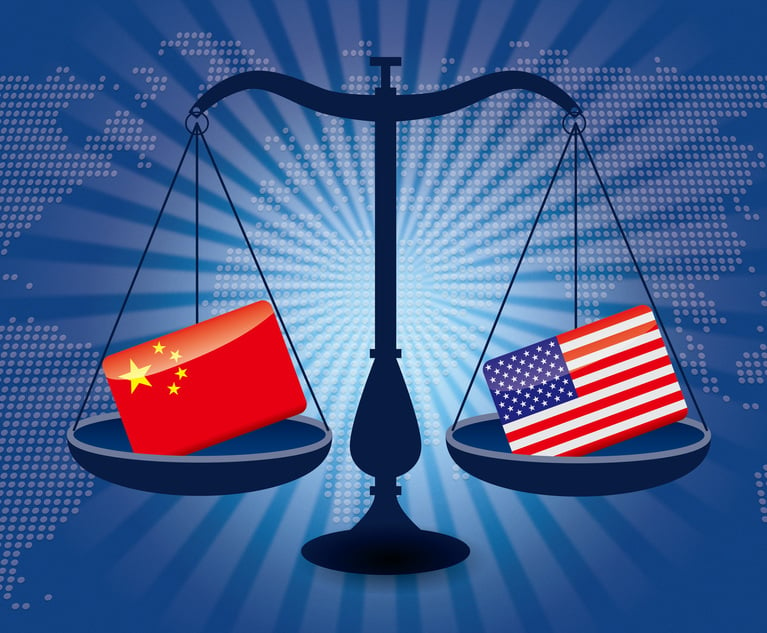Does Equal Pay Require Rapinoe-Level Awesomeness?
It's almost a cliché that women have to work harder to get the same rights and privilege that men take for granted.
July 09, 2019 at 06:25 PM
4 minute read
 Megan Rapinoe of USA during the FIFA Women's World Cup France 2019. Photo: Romain Biard/Shutterstock.com
Megan Rapinoe of USA during the FIFA Women's World Cup France 2019. Photo: Romain Biard/Shutterstock.com
If the U.S. Women's National Soccer Team now doesn't get fair pay and treatment from the U.S. Soccer Federation, I'm going to drive myself to the nearest radical feminist commune, tune out the world, and get in touch with my inner bitch.
Did you see that final women's World Cup game in Lyon, France, between the U.S. and Dutch team Sunday? The American women were awesome. I'm not one to revel in sports, but I was ecstatic about the win.
And what else did I feel? Relief—if the truth be told.
Like many women, I felt a lot was riding on the game. Not only had all 28 members of the team sued the U.S. Soccer Federation for gender discrimination, but its star player Megan Rapinoe was bold and brash (for a woman). Not only was she the epitome of unbridled confidence (some called it arrogance), but she dissed a possible invitation from President Donald Trump.
Remember, Rapinoe didn't exactly mince words. She told Eight by Eight magazine, “I'm not going to the fucking White House.” In response, Trump tweeted: “I am a big fan of the American Team, and Women's Soccer, but Megan should WIN first before she TALKS! Finish the job!”
When you take on the president, and he tells you to shut up and prove yourself, I'd say the pressure is on.
The upshot: Rapinoe and her teammates delivered—big time. But the euphoria entailed more than winning a game, as the crowd at Lyon made abundantly clear. Instead of the expected chant of “USA! USA!,” the crowd was screaming, “Equal Pay! Equal Pay!”
 By winning the World Cup, the U.S. women's team essentially eviscerated any argument the Federation might have as to why women get inferior pay and benefits compared with the under-performing men's team. (The Washington Post offers a detailed analysis of the pay gap. Though the reasons are complicated, the bottom line is this: The pay gap is significant.)
By winning the World Cup, the U.S. women's team essentially eviscerated any argument the Federation might have as to why women get inferior pay and benefits compared with the under-performing men's team. (The Washington Post offers a detailed analysis of the pay gap. Though the reasons are complicated, the bottom line is this: The pay gap is significant.)
But let me go on a limb here and predict that the Federation will cave and give the women what they want. (The case is currently in mediation.) The Federation would be committing public relations suicide otherwise.
There's no doubt that the women soccer team now has leverage and momentum. Which raises this nagging question: How would we have rated their chances of winning the lawsuit if the team had lost? I'm asking because I wonder if women have to overperform to get their grievances taken seriously.
“It is important to keep in mind that the team's equal pay claim should not turn on their win at the World Cup,” says Suzanne Goldberg, director of the gender and sexuality center at Columbia Law School. “The law does not require women to surpass the performance of men to be entitled to equity in compensation or in the terms and conditions of their employment.”
That might be the legal standard, but how does that work in the real world? Indeed, it's almost a cliché that women have to work harder to get the same rights and privilege that men take for granted.
Certainly, we hear it all the time in the legal profession. (And let's not forget that male Big Law partners earn $959,000 on average, compared to $627,000 on average for female partners—a whopping 53% differential—according to research by Major, Lindsey & Africa.)
“That's how women feel, particularly women of color,” says Neena Chaudhry, general counsel and senior adviser of education at the National Women's Law Center, regarding the pressure women feel in the workplace about getting recognition. “Men don't feel that. I hope someday women won't feel that they have to be so much better just to get the benefit of the law.”
Chaudhry adds, “The takeaway from the women's soccer team's win shouldn't be that only women who are fabulous get equal treatment.”
Gosh, I hope she's right. Because being fabulous is exhausting.
Related post: Are Women Still Expected to be Ladylike at Work?
Contact Vivia Chen at [email protected]. On Twitter @lawcareerist.
This content has been archived. It is available through our partners, LexisNexis® and Bloomberg Law.
To view this content, please continue to their sites.
Not a Lexis Subscriber?
Subscribe Now
Not a Bloomberg Law Subscriber?
Subscribe Now
NOT FOR REPRINT
© 2025 ALM Global, LLC, All Rights Reserved. Request academic re-use from www.copyright.com. All other uses, submit a request to [email protected]. For more information visit Asset & Logo Licensing.
You Might Like
View All

Letter from Asia: As American Firms Retreat, Will Loyal UK Firms Regain Market Share In Asia?


Change Is Coming With the New Trump Era. For Big Law, Change Is Already Here
6 minute readTrending Stories
- 1Public Notices/Calendars
- 2Wednesday Newspaper
- 3Decision of the Day: Qui Tam Relators Do Not Plausibly Claim Firm Avoided Tax Obligations Through Visa Applications, Circuit Finds
- 4Judicial Ethics Opinion 24-116
- 5Big Law Firms Sheppard Mullin, Morgan Lewis and Baker Botts Add Partners in Houston
Who Got The Work
J. Brugh Lower of Gibbons has entered an appearance for industrial equipment supplier Devco Corporation in a pending trademark infringement lawsuit. The suit, accusing the defendant of selling knock-off Graco products, was filed Dec. 18 in New Jersey District Court by Rivkin Radler on behalf of Graco Inc. and Graco Minnesota. The case, assigned to U.S. District Judge Zahid N. Quraishi, is 3:24-cv-11294, Graco Inc. et al v. Devco Corporation.
Who Got The Work
Rebecca Maller-Stein and Kent A. Yalowitz of Arnold & Porter Kaye Scholer have entered their appearances for Hanaco Venture Capital and its executives, Lior Prosor and David Frankel, in a pending securities lawsuit. The action, filed on Dec. 24 in New York Southern District Court by Zell, Aron & Co. on behalf of Goldeneye Advisors, accuses the defendants of negligently and fraudulently managing the plaintiff's $1 million investment. The case, assigned to U.S. District Judge Vernon S. Broderick, is 1:24-cv-09918, Goldeneye Advisors, LLC v. Hanaco Venture Capital, Ltd. et al.
Who Got The Work
Attorneys from A&O Shearman has stepped in as defense counsel for Toronto-Dominion Bank and other defendants in a pending securities class action. The suit, filed Dec. 11 in New York Southern District Court by Bleichmar Fonti & Auld, accuses the defendants of concealing the bank's 'pervasive' deficiencies in regards to its compliance with the Bank Secrecy Act and the quality of its anti-money laundering controls. The case, assigned to U.S. District Judge Arun Subramanian, is 1:24-cv-09445, Gonzalez v. The Toronto-Dominion Bank et al.
Who Got The Work
Crown Castle International, a Pennsylvania company providing shared communications infrastructure, has turned to Luke D. Wolf of Gordon Rees Scully Mansukhani to fend off a pending breach-of-contract lawsuit. The court action, filed Nov. 25 in Michigan Eastern District Court by Hooper Hathaway PC on behalf of The Town Residences LLC, accuses Crown Castle of failing to transfer approximately $30,000 in utility payments from T-Mobile in breach of a roof-top lease and assignment agreement. The case, assigned to U.S. District Judge Susan K. Declercq, is 2:24-cv-13131, The Town Residences LLC v. T-Mobile US, Inc. et al.
Who Got The Work
Wilfred P. Coronato and Daniel M. Schwartz of McCarter & English have stepped in as defense counsel to Electrolux Home Products Inc. in a pending product liability lawsuit. The court action, filed Nov. 26 in New York Eastern District Court by Poulos Lopiccolo PC and Nagel Rice LLP on behalf of David Stern, alleges that the defendant's refrigerators’ drawers and shelving repeatedly break and fall apart within months after purchase. The case, assigned to U.S. District Judge Joan M. Azrack, is 2:24-cv-08204, Stern v. Electrolux Home Products, Inc.
Featured Firms
Law Offices of Gary Martin Hays & Associates, P.C.
(470) 294-1674
Law Offices of Mark E. Salomone
(857) 444-6468
Smith & Hassler
(713) 739-1250










